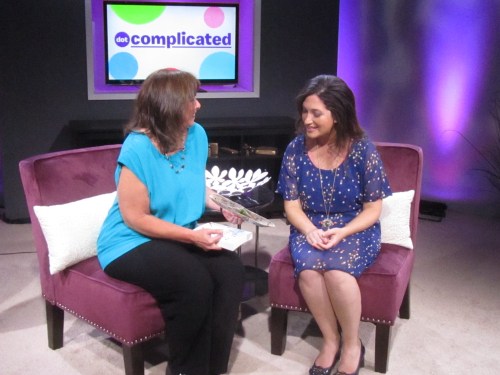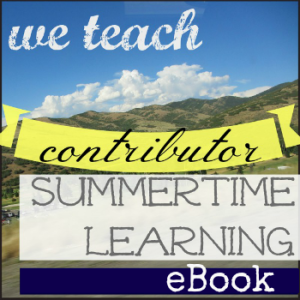While many of us are preparing our kids to go back to school, the calendar and weather still signal summer. The days are longer, our to-do lists are less crowded. Even if you never let go of frenzy for summer, or you’re feeling it now as you gear up for fall, there are a few small shifts that can really help you lighten up to match the remaining summer season, while also helping squeeze more true pleasure from this joyous time of year.
Make a Summer Bucket List
For many, summer conjures beach days, county fairs, gazing at the stars, planting flowers, playing flashlight tag, or making simple crafts. What else would you and your family really like to have done by the time Labor Day comes around? Make a summer bucket list of ideas and hang it where you can see it, or write each idea on a piece of paper or a popsicle stick and place those in a bucket. Have one family member choose an activity once or more per week for the rest of summer. Don’t feel like you have to do everything on the list – you can do many of your favorites another time.
Watch the Sun Rise or Set
The day naturally slows when we take the time to witness a dramatic and beautiful sunrise or sunset. Get comfortable, pay attention to the changing colors and light, and make a point to either greet or say goodbye to the day. This small act can be very grounding and gratifying to people of all ages, as it truly takes us out of the artificial time of clocks, calendars, emails and to-do lists, and into the rhythms of nature and the comforting, yet awe-inspiring, turning of the Earth.
Make Time for Down Time
Many of us are uncomfortable with empty spaces on the calendar. As difficult as it may be, and as enriching as many choices are, try to resist the urge to schedule every moment of summer. Kids actually need play time, down time and family time in order not only to recharge, but also to fully thrive. In addition, they don’t need to be constantly entertained. Free time, and even boredom, has produced wonderful innovations and insights. It is often during quiet time that many children make unique discoveries, including the directions of their own inner compasses. If down time doesn’t come naturally to you, schedule some into your calendar. This can be especially important as everyone gears up for a busier season.
Be Present and Do One Thing at a Time
Have you ever noticed that kids are usually not doing and thinking about multiple things at once? This is one area in which we can probably learn from them. Many of us parents would be surprised by how much our kids just want to be with us, and how our multitasking makes them feel. In studies of hundreds of kids over five years, Dr. Sherry Turkle, director of the MIT Initiative on Technology and Self, unearthed countless stories of children feeling neglected by their parents for media.
Try to compartmentalize your work and other tasks, so that they don’t invade precious time with your family. Because of the allure of electronics, we often have to turn our devices off as well, so that we can devote our attention to the people we’re with and the activities we’re doing without being distracted by alerts and the occasional itchy-fingered desire to check in with the electronic world.
Give Your Electronics the Day Off
Electronic media is so incredibly seductive for people of all ages that sometimes we need to take things a step further and formally unplug for a period of time in order to experience our families, selves and time. Follow the direction of most of the world’s religions and cultures and call a scheduled day of rest each week, for a day, a night, or a few hours. If you’re constantly plugged in, it can be very enlightening to see what happens when you get quiet, and also when you do get back to media. It is usually emergency-free and easier to get back into the flow of work and communication than we envision.
In addition, many TV shows contain anxiety-provoking images and messages. Try cutting out one or more TV shows per week and substituting them with a family walk or game.
Be a Tourist in Your Town
We often think we have to engage in awesome (read expensive) summer vacation travel, when sometimes the simplest experiences can prove the most delightful, especially for younger children. Get up early one day and watch the stores and businesses in your town receive their deliveries and come alive. Visit your nearest large city and partake in a true tourist activity that you’ve never done before. Walk or ride bikes as a family in a new neighborhood. You may be surprised by just how much fun everyone has, trying new things and seeing local surroundings with fresh eyes. If you have younger ones and do have time when others go back to school, that can be a great time to explore a city without the summer tourists.
Enjoy Your Family
Summer often means extended time with your family and with that inevitably comes some days that are more trying than others. Try to keep in mind that this phase will pass, summer only comes once a year, and the kids will only be this age once. If having other parents around helps, participate in group activities, either with a buddy or through a structured program. Relish the good times and the memories you’re forming now. Chances are that summer’s smallest moments will be the ones you regard with the most fondness later.
A version of this post originally appeared in Dot Complicated.
These tips were adapted from Fed Up with Frenzy: Slow Parenting in a Fast-Moving World, which contains 300+ tips and fun family activities.
Photos by Susan Sachs Lipman
You might also like:
8 Fun Things to Do While it’s Still Summer
Summer Family Fun: Make and Experiment with Giant Homemade Bubbles
Tidepooling with Kids: Explore Undersea Creatures
Stir Up Some Triple Berry Jam
































































